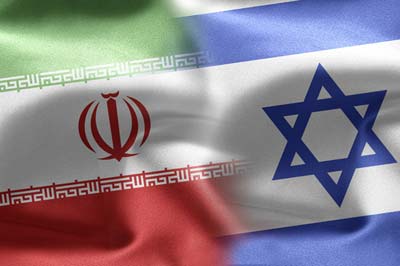Ally Thibault
Iran and Israel have always had a tumultuous relationship, if one can call being sworn enemies a relationship, but today tensions are rising like never before.
Iran’s secret development of nuclear weapons has been a hot topic of controversy over the last few months but has exploded as the hostile nation threatens to seal off the Strait of Hormuz, an important shipping entrance to the Persian Gulf.
Iran has been an outspoken opponent of Israel, and Israel (read: U.S.) of Iran. Two nations, full of hateful ideology and equipped with nuclear arms, seem to be waiting on the edge of war—or so the media hype continually tells us.
But there is more truth to the warmongering and fear today than ever before. If Iran does in fact have a nuclear missile, it’s no secret that its target, if actually intended for use and not just fear of use, would be Israel. And Israel’s undisclosed stockpile of nuclear weapons and staunch U.S. support often leads the small nation with a jingoist history to feel invincible on the world stage.
A New York Times Magazine cover story a few weeks ago featured a picture of burning ashes spelling out “Israel VS Iran,” claiming that conditions in the Middle East are ripe for an attack by Israel. With the increased threats by Iran’s military on the seas, the seeming complicity of Asian powers in refusing to put sanctions on Iranian oil as the U.S. and the EU have done, and the mysterious deaths of Iranian scientists, intrigue and escalating danger may be leading the nations to war.
The U.S., as Israel’s most reliable and powerful ally, has declared it will not let Iran seize the Strait of Hormuz. Along with European allies, sanctions have been placed on Iranian oil exports—but Asian powers have been mum on doing the same. Just as China and Russia, as members of the UN permanent security council have refused to stand up to Syria, they will not decry the actions of Iran.
The sudden deaths of several Iranian scientists create an air of intrigue fit for an action movie. All parties possibly involved—Israel, the CIA, and even Iran itself—have denied knowledge or involvement. With no one taking responsibility or even confessing prior knowledge of the murders, the world if left blindly guessing who killed them and why. This mystery sparks heated talks and fear that continues to feed into the tensions.
The real question isn’t really about Iran and Israel anymore, but about the U.S. and Israel and the U.S. and Iran. It is widely believed that if Israel felt they could survive the blowback of attacking Iran, it could be done—if the U.S. is willing to unequivocally support Israel against Iran, a controversy often sidestepped in American political debates, then nuclear weapons could be used.
Iran’s increased hostility through action, instead of long rambling UN speeches, has the world worried about their intentions—has developing nuclear arms been motivated by a desire for respect and attention or does Iran really plan on challenging Israel and the U.S.?
The U.S. and the world will find itself in a sticky situation soon if either nation decides to attack, pitting proxy superpowers against proxy superpowers. Instead of falling into the trap of fear, the powers that be and the public must keep a level head and diplomatic attitudes—a serious challenge for enemies like Iran and Israel.







